Victor R. Martinez
Automated Quality Assessment of Cognitive Behavioral Therapy Sessions Through Highly Contextualized Language Representations
Feb 23, 2021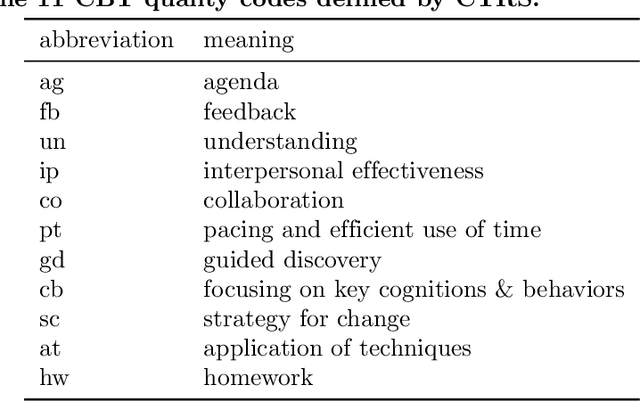


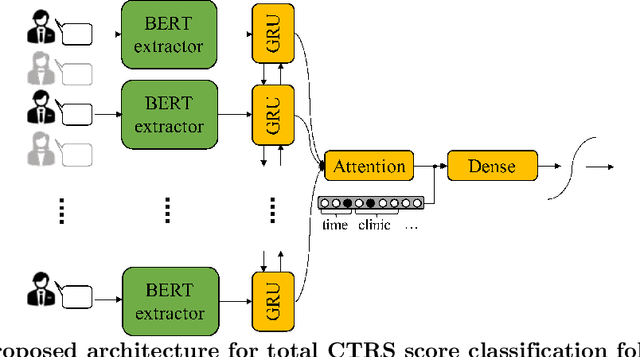
Abstract:During a psychotherapy session, the counselor typically adopts techniques which are codified along specific dimensions (e.g., 'displays warmth and confidence', or 'attempts to set up collaboration') to facilitate the evaluation of the session. Those constructs, traditionally scored by trained human raters, reflect the complex nature of psychotherapy and highly depend on the context of the interaction. Recent advances in deep contextualized language models offer an avenue for accurate in-domain linguistic representations which can lead to robust recognition and scoring of such psychotherapy-relevant behavioral constructs, and support quality assurance and supervision. In this work, a BERT-based model is proposed for automatic behavioral scoring of a specific type of psychotherapy, called Cognitive Behavioral Therapy (CBT), where prior work is limited to frequency-based language features and/or short text excerpts which do not capture the unique elements involved in a spontaneous long conversational interaction. The model is trained in a multi-task manner in order to achieve higher interpretability. BERT-based representations are further augmented with available therapy metadata, providing relevant non-linguistic context and leading to consistent performance improvements.
"Am I A Good Therapist?" Automated Evaluation Of Psychotherapy Skills Using Speech And Language Technologies
Feb 22, 2021
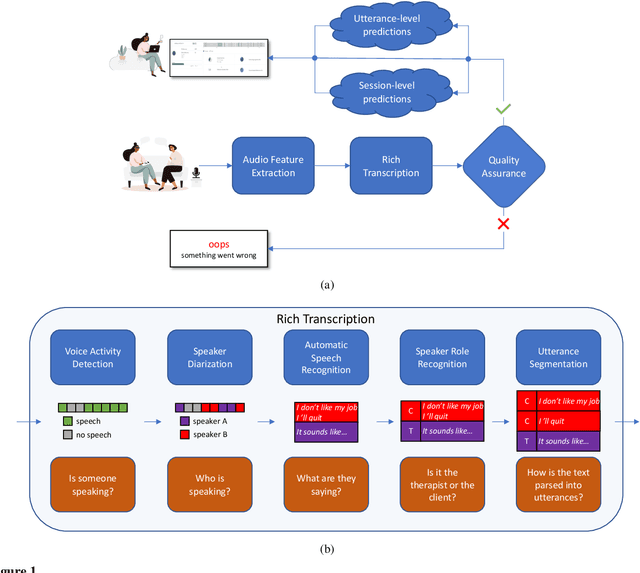
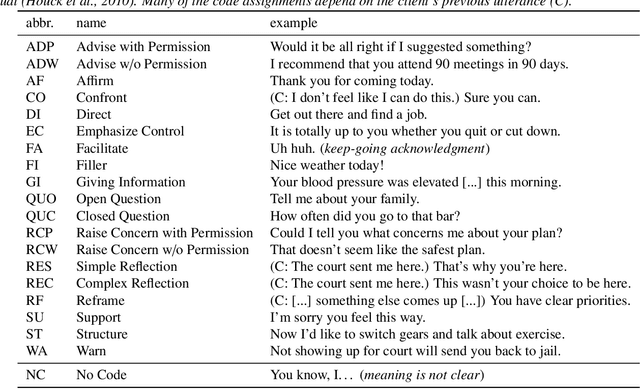
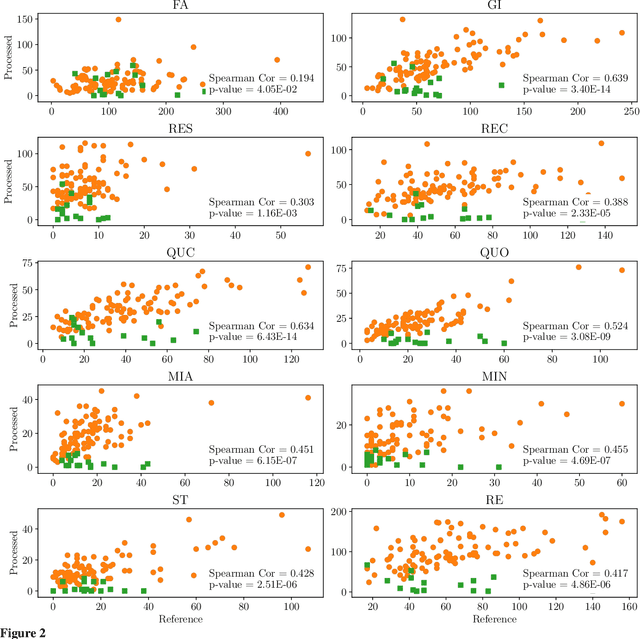
Abstract:With the growing prevalence of psychological interventions, it is vital to have measures which rate the effectiveness of psychological care, in order to assist in training, supervision, and quality assurance of services. Traditionally, quality assessment is addressed by human raters who evaluate recorded sessions along specific dimensions, often codified through constructs relevant to the approach and domain. This is however a cost-prohibitive and time-consuming method which leads to poor feasibility and limited use in real-world settings. To facilitate this process, we have developed an automated competency rating tool able to process the raw recorded audio of a session, analyzing who spoke when, what they said, and how the health professional used language to provide therapy. Focusing on a use case of a specific type of psychotherapy called Motivational Interviewing, our system gives comprehensive feedback to the therapist, including information about the dynamics of the session (e.g., therapist's vs. client's talking time), low-level psychological language descriptors (e.g., type of questions asked), as well as other high-level behavioral constructs (e.g., the extent to which the therapist understands the clients' perspective). We describe our platform and its performance, using a dataset of more than 5,000 recordings drawn from its deployment in a real-world clinical setting used to assist training of new therapists. We are confident that a widespread use of automated psychotherapy rating tools in the near future will augment experts' capabilities by providing an avenue for more effective training and skill improvement and will eventually lead to more positive clinical outcomes.
 Add to Chrome
Add to Chrome Add to Firefox
Add to Firefox Add to Edge
Add to Edge